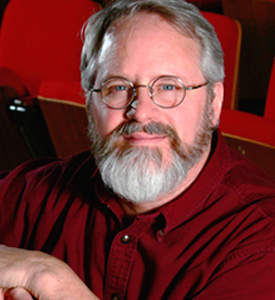Directory
James Hiller
Associate Professor of Music Therapy
Full-Time Faculty
College of Arts and Sciences: Music
Degrees
- Ph.D., MT-BC, Temple University
- Music Therapist-Board Certified (MT-BC)
- Licensed Professional Music Therapist (LPMT)
Profile
Dr. Hiller's years of experiences as a clinician, educator and supervisor, and decades as a performing musician, are elements that enrich his teaching, scholarship, workshop facilitation and conference presentations. Dr. Hiller's clinical experience includes work with children, adolescents, adults and older adults with mental health and substance use challenges, individuals with intellectual, developmental and neurological challenges and persons diagnosed with forms of dementia and complications of aging. Dr. Hiller’s clinical work tends toward "active" music therapy methods with particular expertise in clinical music improvisation-based methods.
Dr. Hiller’s scholarship includes publications in textbooks and professional journals, and he is a regular presenter and workshop facilitator at international, national, regional and state music therapy conferences. Publications and presentations include such topics as clinical music improvisation assessment and treatment approaches, theoretical foundations of music therapy, intersections and implications of music and emotions in therapy, designing and facilitating song-based music therapy methods, phenomenological song listening and interpretation and music therapy education and training.
Faculty perspective
“My clinical, performance and lifelong learning experiences have taught me to believe deeply in the power of music experiences as catalysts for personal insight, emotional healing, interpersonal learning and enhancement of human development across the lifespan. At its core, music therapy is an experiential form of treatment wherein an individual engages and relates with themself (intramusically and intrapersonally), the music therapist (intermusically and interpersonally) and the musical processes that unfold within a session. Therefore, I believe that a music therapist's primary role is to assist and partner with each individual client as they live through the challenges and embrace the affordances inherent in these relationships. I further believe the more deeply a music therapist in-training (and as a professional) personally experiences the challenges and affordances of music and musicking, and thereby comes to understand music in both embodied and psychological ways, the more sensitively and effectively they are able to guide individuals into and through these therapeutically significant relationships. As such, I believe that an essential part of each music therapy student's development is nurturing their own deeply personal relationship with music in their own life."
Research interests
- Clinical music improvisation
- Song-based music therapy methods
- Theories supporting music therapy practice
- Music therapy education and training pedagogy
- The intersections and implications of music and human emotions
- Music-based supervision approaches
Courses taught
- Introduction to Music Therapy
- Functional Music Therapy Skills
- Research in Music Therapy
- Music Therapy Principles
- Music Therapy Methods (improvisation, re-creative, receptive and composition)
- Design and Facilitation Practice Lab
- Music Therapy Practicum (five levels, hands-on and lab supervision)
- Music Therapy Professional Development Workshop
- Music Therapy Internship (supervision)
- History of American Popular Song
Selected publications
Gardstrom, S. C., & Hiller, J. (2022). Improvisational methods of music therapy. Barcelona Publishers.
Gardstrom, S. C., Hiller, J., Heiderscheit, A., & Jackson, N. A. (2021). Music therapy education and training: Support for a Methods-based approach. Music Therapy Perspectives, miab026. https://doi-org.libproxy.udayton.edu/10.1093/mtp/miab026
Hiller, J., Belt, C., Gardstrom, S. C., & Willenbrink-Conte, J. (2021). Safeguarding curricular self-experiences in undergraduate music therapy education and training. Music Therapy Perspectives 39(1), 86–94.
Hiller, J. (2020) The impact of singing engagement on food intake of individuals with Alzheimer’s disease and related dementias: A multi-site, repeated measures study. VOICES: World Forum for Music Therapy, 20(2), 1–20. https://doi.org/10.15845/voices.v20i2.2869
Hiller, J. (2019). Music therapist's preparation for song discussion: Meaning-making with the music. Music Therapy Perspectives, 37(2), 205–212. https://doi.org/10.1093/mtp/miz005
Hiller, J. (2019). Supervision in the field. In M. Forinash, (Ed.), Supervision in Music Therapy, (2nd ed.), (pp. 141–156). Barcelona Publishers.
Hiller, J. M., Gardstrom, S. C. (2019). Warning: Music therapy comes with risks. Oxford University Press Blog Site, Oxford University Press. https://blog.oup.com/2019/03/warning-music-therapy-risks/
Hiller, J. & Gardstrom, S. (2018). The selection of music experiences in music therapy. Music Therapy Perspectives, 36(1), 79–86. https://doi.org/10.1093/mtp/miy001
Hiller, J. (2018). James Hiller: Autobiographical account of my evolution as a music therapist. In J. Mahoney (Ed.), Lives of prominent music therapists, Volume II. Barcelona Publishers.
Gardstrom, S. & Hiller, J. (2017) Resistances in group music therapy with women and men with substance use disorders. Voices: A world forum for music therapy.
Hiller, J. (2016). Epistemological foundations of objectivist and interpretivist research. In B. Wheeler & K. Murphy (Eds.), Introduction to music therapy research. Dallas, TX: Barcelona Publishers. [A 20-chapter introductory eBook.]
Hiller, J. (2016). Epistemological foundations of objectivist and interpretivist research. In B. Wheeler & K. Murphy (Eds.), Music therapy research, 3rd edition (pp. 99–117). Dallas, TX: Barcelona Publishers. [A 68-chapter compendium on music therapy research.]
Hiller, J. (2014). Aesthetic foundations of music therapy: Emotion and music. In B. Wheeler (Ed.), Music therapy handbook (pp. 29–39). NY: Guilford Press.
Hiller, J. (2012). Implications of embodied cognition and schema theory for discerning potential meanings of improvised rhythm (pp. 580-616). In K. Bruscia (Ed.), Readings on music therapy theory (Reading #22, eBook). Gilsum, NH: Barcelona Publishers.
McHugh, L., Gardstrom, S., Hiller, J., Brewer, M., & Diestelkamp, W. (2012). The effects of pre-meal, vocal re-creative music therapy on nutritional intake of residents with Alzheimer’s disease and related dementias. Music Therapy Perspectives, 30(1), 32-42.
Gardstrom, S., Hiller, J. (2010). Song discussion as music psychotherapy. Music Therapy Perspectives, 28(2), 147–156.
Hiller, J. (2009). Use of and instruction in clinical improvisation. Music Therapy Perspectives, 27(1), 25-32.
